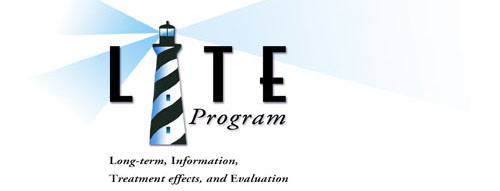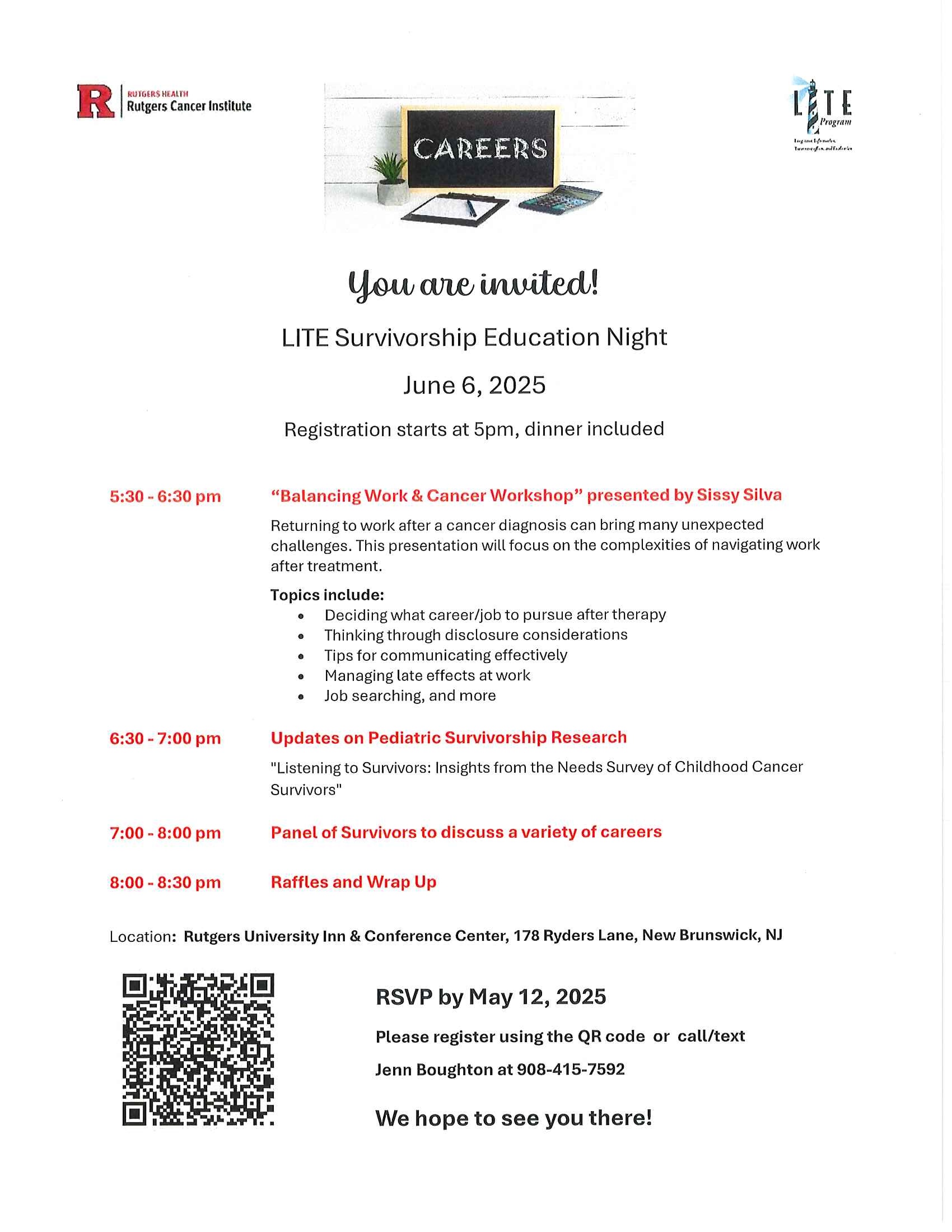
L ong-term
I nformation
T reatment - Effects
E valuation
About the Program
The LITE Program at the Cancer Institute, provides long-term evaluation, support, and health education for the growing population of childhood cancer survivors. The successes in the treatment of childhood cancer have led to increasing survival rates.
Survivors may be at risk for developing problems (late effects) from the life-saving cancer treatments they received (chemotherapy, radiation, and surgery) since the treatment not only gets rid of the cancer, but also damages healthy tissues/cells.
Long-lasting and late-appearing damage can disrupt health, normal growth and development, well being, and the quality of life. Our goal is to provide the on-going care needed to meet the needs of childhood cancer survivors.
With medical advances, many more children and teenagers will survive the diagnosis of cancer. The health needs of these survivors are different from those receiving therapy. They need follow-up (routine check-ups, bloodwork, tests, and teaching) by doctors and nurses who know the late effects of cancer treatments. The LITE Program is designed to meet the needs of these long-term survivors and their families.
Who We Are
We are a comprehensive team of specialists with years of experience in caring for children. We are interested in the late effects of therapy, finding problems early, and providing the appropriate follow-up care to meet the special needs of survivors. Our goal is to enable the survivors of childhood cancer to experience the best quality of life by addressing their individual late effects and providing the necessary support, education, and intervention. The LITE team will make appropriate referrals to genetics, endocrinology, cardiology, neurology, or nephrology.
- Genetics: doctors that counsel families about problems dealing with genes and traits passed from parents to their children
- Endocrinology: doctors that see patients for problems with glands such as thyroid or adrenal
- Cardiology: doctors that see patients for heart problems
- Neurology: doctors that see patients for problems with the nerve tissues, such as seizures
- Nephrology: doctors that see patients for problems pertaining to the kidneys, such as hypertension, bladder problems
LITE Survivorship Education Night
View the flyer and RSVP by May 12, 2025.
Our Team
Dawn M. Carey RN, MSN, APN
LITE Program Coordinator
Pediatric Nurse Practitioner
Archana Sharma, DO
Assistant Medical Director of the LITE Program
Assistant Professor of Pediatrics
Division of Pediatric Hematology/Oncology
Goals of the LITE Program:
- To provide survivors of childhood cancer with a complete evaluation from our LITE Team
- To provide guidelines for follow-up in regards to the late effects of therapy and promotion of a healthy lifestyle
- To provide up-to-date information and support to survivors and their families
- To identify late effects of therapy and provide the necessary education, support, treatment, and referral to other health care providers or community agencies
- Provide educational programs and support groups for survivors
Who is Eligible?
Any child treated for childhood cancer that is now 2 years off treatment and without evidence of disease.
Contact Information
You can reach us at 732-235-2465.
We used the LIGHTHOUSE as our symbol for the program because it is a strong beacon that shines a light and guides you in the right direction. It will provide a sense of security and light the path into the future for our cancer survivors. This program focuses on survivorship.


